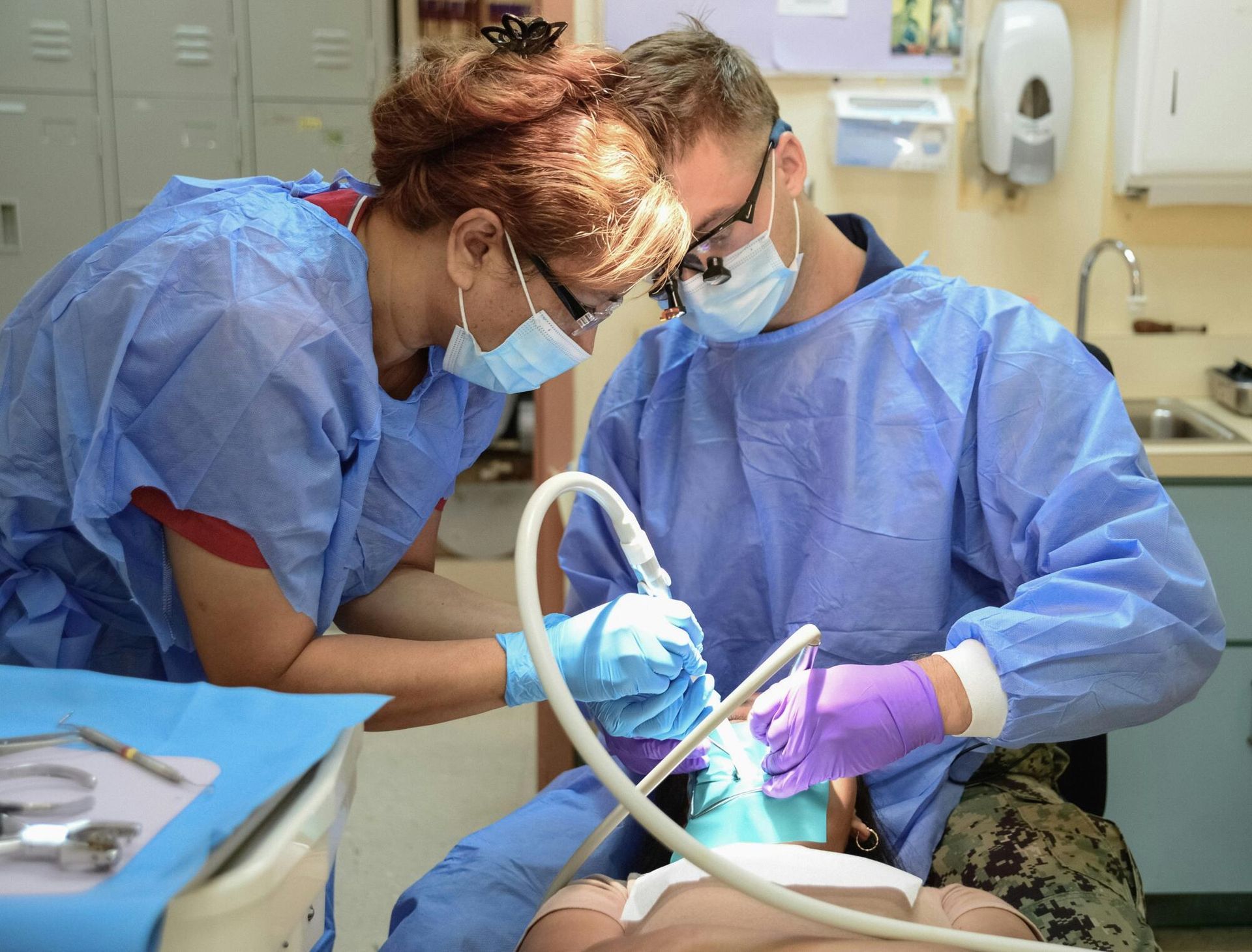What Happens if TMJ is Left Untreated?

Did you know that one out of every 12 people in the United States is affected by a TMJ disorder?
That comes out to approximately 12% of the overall population or approximately 35 million people. Many experts suggest that this number actually may be a low estimate. There are thousands upon millions of undiagnosed individuals due to underdiagnosis.
Many people wonder about TMD dentistry and ask, "where can I find TMJ specialists near me?"
Ultimately, TMJ treatment is easily accessible in most areas of the country. To avoid the effects of untreated TMJ, it's smart to seek dental consultation as soon as you notice the effects of TMJ.
In this article, we will walk you through everything you need to know about why you should have your TMJ disorder treated right away.
What Is TMJ?
TMJ stands for temporomandibular joint. This is a sliding hinge on the corner of your mouth. The joint connects the jawbone to the rest of your skull.
You have one TMJ joint on each side of your mouth. When TMJ disorders arise, they can cause pain in this joint and affect the function of muscles that control your jaw movement.
Most people report pain or tenderness at the joint line. They may have pain in one joint or experience symptoms on both sides. Either way, there is usually aching pain that can extend all the way up to one or both ears.
Often times patients will notice problems when chewing or have pain when trying to chew. There may be locking of the joint that makes it challenging to open or close the mouth.
Many people will describe a clicking sound or a grating sensation that occurs when they open their mouths or take bites of food.
In most cases the pain and discomfort associated with a TMJ disorder are self-limiting. It is usually temporary and can be relieved with basic self-care.
However, it's important to seek treatment if the problem continues forward. Untreated TMJ disorders can have negative health consequences.
Why You Should Treat Your Ongoing TMJ Disorder
When you have ongoing TMJ disorder issues in your jaw, you may pay the price without realizing it. TMJ disorders can actually greatly interfere with your day-to-day life. As you continue on with the problem, you may not even notice the additional symptoms that come with these disorders.
Many patients will experience tension in their neck, bruxism or tooth grinding, or significant headaches. Tooth grinding, for example, can take a toll on your sleep.
It could interrupt sleep with additional clenching and also lead to longer-term problems like sleep apnea, insomnia, and changes in cortisol levels.
Further, disrupted sleep can lead to mental health issues like depression and anxiety. It will interfere with the body's natural responses to hormones.
There is also some concern amongst dentists about the long-term wearing down of your teeth. This can occur in a premature fashion when you have a TMJ disorder.
Finally, many people will experience problems with ear ringing and other ENT disorders. These include balance problems or vertigo, and won't get better without treatment in many circumstances.
If you're experiencing these symptoms, however, it may be due to other causes. You should seek medical attention as soon as possible to rule out more serious illnesses.
Because of all these reasons, it's important to seek dental care for your TMJ disorder as soon as you can. It's likely that if you have been suffering for some time, there are still ways to help and improve your symptoms.
Types of Treatment in TMD Dentistry
There are a variety of medications and therapies that your dentist or doctor may suggest once you have come in to seek treatment.
Medications include pain relievers like anti-inflammatories, as well as antidepressant medications that can be used to promote pain relief. It's also possible to give a drug that provides a muscle-relaxing effect in severe cases.
Other therapies for TMJ disorders include mouth guards or oral splints. It's not entirely clear why these devices are helpful, but they do have good satisfaction ratings from patients.
Additionally, you can strengthen the jaw muscles around the TMJ joint using physical therapy. There are exercises you can perform in the PT office as well as on your own time. Other treatments might include ultrasound, ice, or low degrees of heat.
Finally, education and counseling have been shown to improve long-term outcomes. When you understand the factors that aggravate your disease, you can avoid them more effectively.
It's also possible for surgical procedures to be performed to take a more drastic action to improve the function of the joint. These procedures include arthrodesis, injections, arthroscopy, and even open joint surgery.
Finding TMJ Specialists Near Me
At the end of the day, for those asking where they can find TMJ specialists near me, there is almost always help close at hand. TMD dentistry exists all over the country providing a wide array of medical and surgical services to help patients feel their best.
When you have been struggling with a TMJ disorder for some time, it's important to proactively seek treatment to reduce your symptoms both in the short-term and the long-term. A wide array of treatment options exists and you will be able to get your life back on track often in a matter of weeks.
If you're interested in learning more from our dental specialists in Burke, Virginia, please contact us today.












